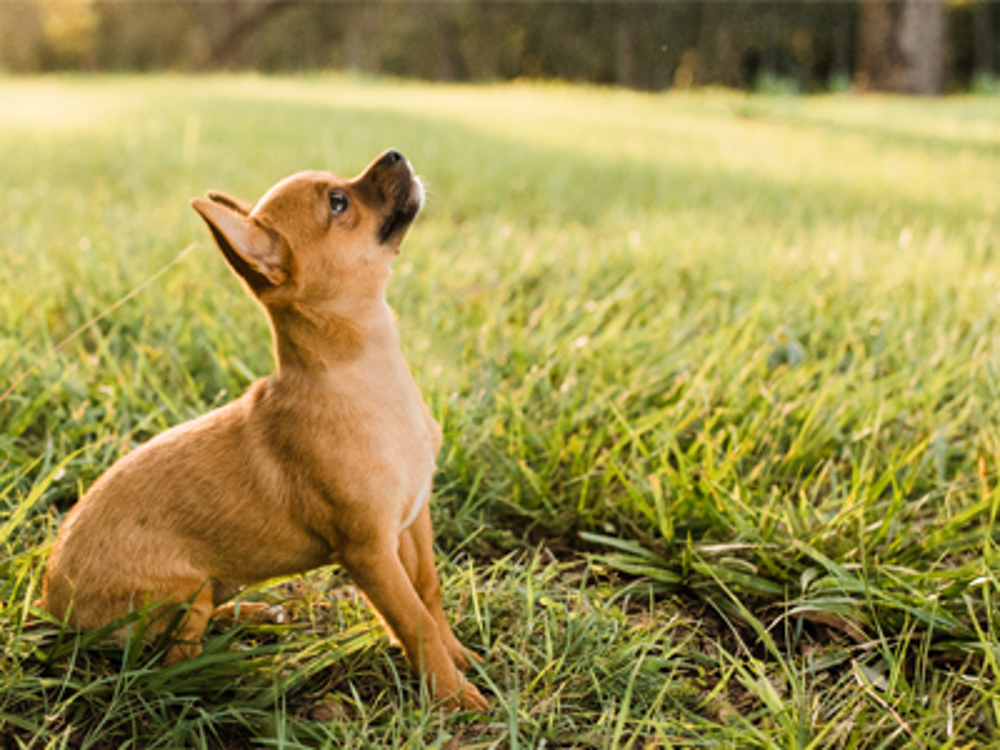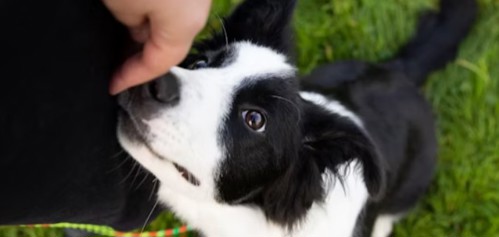
If you notice a change in your dog’s poop, such as it becoming runny, pale or contains blood or mucus, what could this mean, is it normal or could it be a sign of a health issue? Our guide to understanding your dog’s poo can help you find out what a change in your dog’s bowel movements could mean and whether you should be concerned.
What should my dog’s poop look like?
All dogs are different and so are their poos. What’s normal and healthy for one dog may not be normal for another, but ideally, a dog’s poo should be a score number one on the faecal scoring chart.
Picking up your dog’s poo may not be the most glamorous part of owning a dog, but it does mean that you can quickly spot if something is different. If you do notice a change, then it’s a good idea to speak to your vet for advice.
Picking up your dog’s poo may not be the most glamorous part of owning a dog, but it does mean that you can quickly spot if something is different. If you do notice a change, then it’s a good idea to speak to your vet for advice.
The best lifetime dog insurance
Protect your dog with the UK's Number 1 pet insurer, with up to £25,000 cover for vet fees.
Colour
A dog’s poo should be a chocolatey brown colour, which is a sign of a healthy gut, but the colour of a dog’s poo can change depending on what they’ve eaten. Some dog foods use colourings and these can continue to have a colouring effect even as they make their way out of the body. Always think about what your dog has eaten if you notice a change in the colour of their poo.
If your dog’s poo is any of the colours listed below, or if you’re worried about a change in colour, then contact your vet for advice:
If your dog’s poo is any of the colours listed below, or if you’re worried about a change in colour, then contact your vet for advice:
- Green – This could show that your dog has eaten too much grass, or it could suggest an issue with their gallbladder
- Orange/yellow – This may imply that your dog has a problem with their pancreas, gallbladder or liver
- Red streaks – Streaks of fresh blood could suggest damage within the large intestine
- Black – This could suggest the presence of bleeding from the upper part of your dog’s gastrointestinal tract (from their stomach or small intestine)
- Greasy and grey – This can suggest a biliary problem or issues with their pancreas
Shape
Ideally, your dog’s poo should be shaped like a log and keep its form when picked up. If your dog’s poo is hard, round and pebble like (a score number one on the faecal scoring chart), then it could imply that they’re dehydrated.
Consistency
When you use a bag to pick up your dog’s poo, their faeces should be easy to pick up, compact, slightly moist and about as firm as children’s play-dough. If it feels hard, or dry, then it could be an indicator that your dog is dehydrated or constipated. If it’s softer than normal, or very watery, then it suggests that something is not quite right with their tummy. There can be a very large number of causes of diarrhoea or looser stools, but if you notice that the consistency of your dog’s poo isn’t how it should be, then speak to your vet.
Size
The size of your dog’s poo depends on how big your dog is, how much they’ve eaten and the amount of fibre that’s in their diet. The size of their poo tends to increase as they eat more fibre or if they’ve eaten food that is less digestible.
Frequency
Generally, once fully grown, adult dogs tend to poo twice a day. However, every dog is different, so this can vary, and will depend on how active they are and how digestible their food is. If your dog starts to poo on a very frequent basis, particularly if it’s looser than normal, this may prompt a change in diet or a discussion with your vet.
Unusual things in your dog’s poo
Abnormal findings in your dog’s poo can indicate several health or behavioural problems or habits:
- Mucus – this may suggest that your dog’s colon is irritated or inflamed
- Lots of grass – this might indicate that they’re eating grass, possibly because they’re bored, stressed, have been feeling unwell, or in some cases, just out of habit!
- Lots of hair – this could suggest that your dog is losing hair (possibly due to a skin problem) or that they’ve been licking themselves a lot, which could be a sign of an allergy, boredom or anxiety
- Small white flecks – this can be a sign of worms
Think your dog may be affected?
If you're worried about your dog's health, always contact your vet immediately!
We are not a veterinary organisation and so we can't give veterinary advice, but if you're worried about any of the issues raised in this article, please contact your local vet practice for further information
Find a vet near you
If you're looking for a vet practice near you, why not visit the Royal College of Veterinary Surgeons' Find a vet page.

